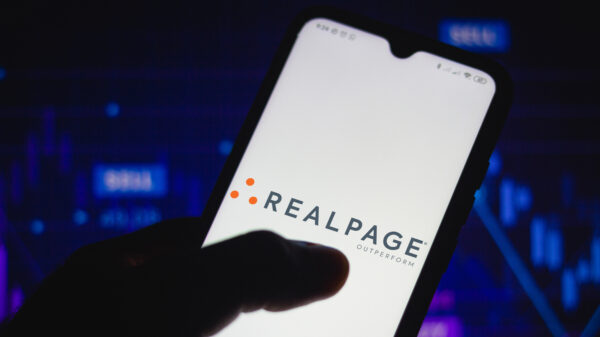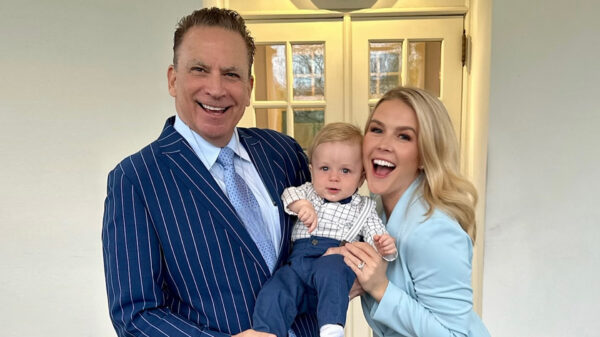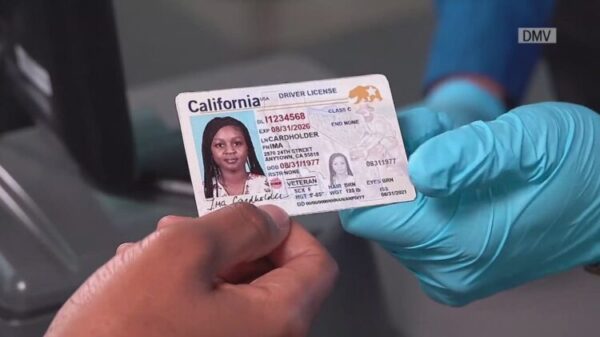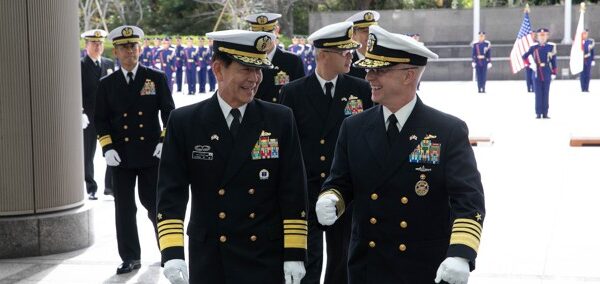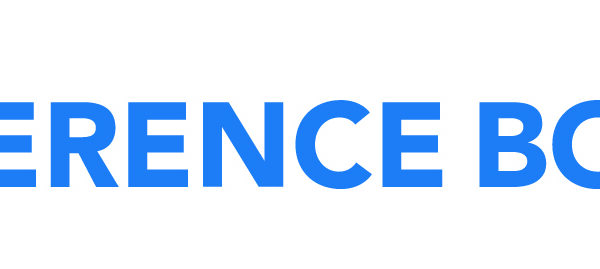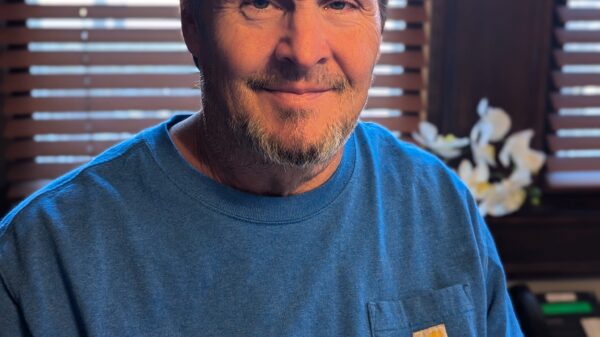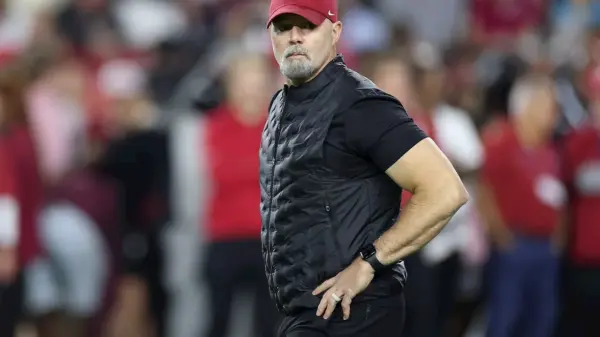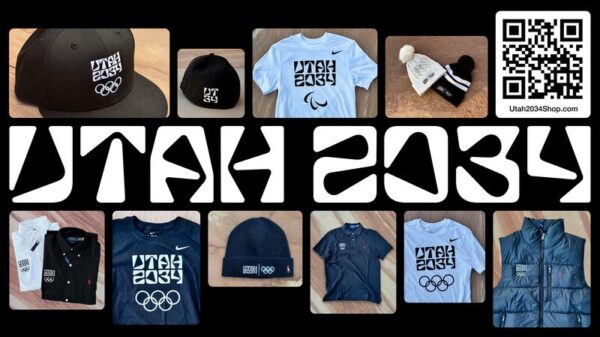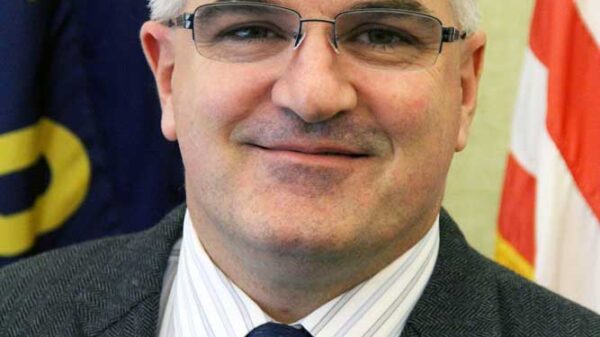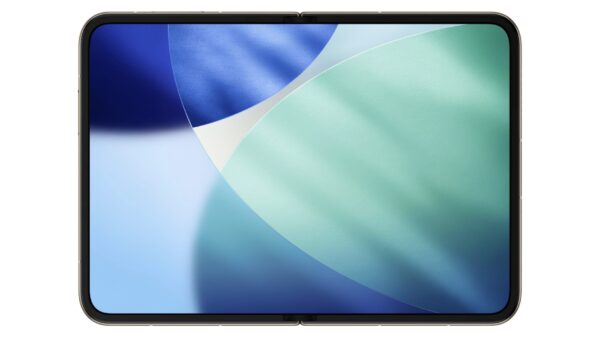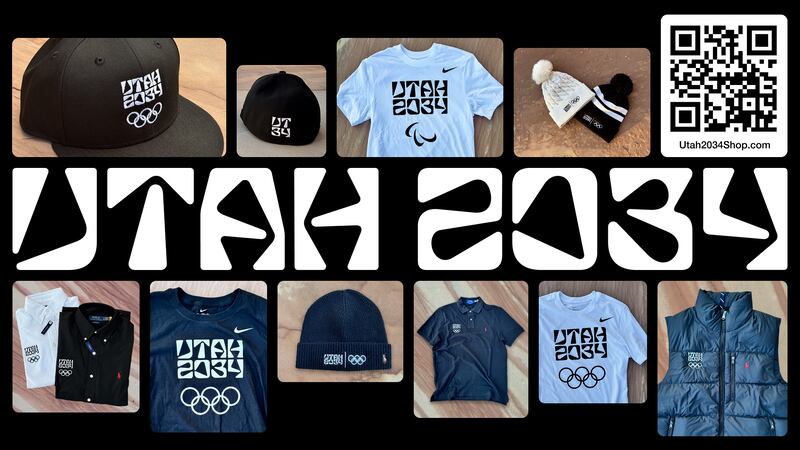The next Winter Olympics and Paralympics will officially be named Utah 2034, organizers announced on Monday, marking a significant rebranding effort aimed at showcasing the entire state rather than focusing solely on its capital, Salt Lake City. This decision comes almost 3,000 days ahead of the games, which are set to return to the region after the successful 2002 Winter Games.
The new logo, inspired by Utah’s iconic red rock formations and the shapes created by winter athletes on snow and ice, will be prominently displayed across various platforms, including a 12-foot sculpture at Salt Lake City International Airport. According to Fraser Bullock, president and executive chair of the Organizing Committee for the 2034 Olympic and Paralympic Winter Games, this initiative aims to broaden Utah’s brand on a global scale, akin to the recognition gained by Salt Lake City in 2002.
Governor Spencer Cox signed the host contract with the International Olympic Committee (IOC), which obligates the state to cover any financial shortfalls associated with the event. Bullock emphasized that “all of Utah is part of these Games,” highlighting the financial and logistical role the state will play in hosting the event. He noted that many competitions will occur outside of Salt Lake City, further reinforcing the state’s collaborative approach.
Although Salt Lake City remains a critical venue for the Games, hosting key events such as the Opening and Closing Ceremonies at the University of Utah’s Rice-Eccles Stadium, the city’s name will appear in smaller print below the new logo. This branding strategy, referred to as the “default logo,” emphasizes Utah’s broader identity while maintaining Salt Lake City’s historical significance.
The branding shift has garnered mixed reactions. Salt Lake City Mayor Erin Mendenhall expressed her concern, stating, “It stings. It’s not the route I would have chosen for the name of these Games, but I sincerely do want the Games to lift up every community in the state.” Mendenhall reiterated that Salt Lake City will remain integral to the Games, serving as the location for ceremonies, athlete accommodations, and key competitions.
Unlike the mayor during the 2002 Games, Mendenhall does not have a voting role on the organizing committee, although she holds an honorary title and advisory positions. She has previously expressed that the state is prioritizing an inclusive vision for the Games, stating, “The state has been clear that they are focused on making these Games about the entire state.”
The organizing committee, which includes leadership from various Utah officials, has been developing this comprehensive approach since the IOC opened the bidding process over six years ago. According to Brad Wilson, the committee’s CEO, the aim has always been to engage the entire state in the hosting effort. Wilson noted that the name “Utah 2034” reflects a collective identity, stating, “This isn’t anything negative about Salt Lake at all. This is just about all of us who are Utahns, regardless of whether we live in one city or another, coming together to be host to the world.”
The IOC has welcomed the new name, with a spokesperson indicating that it will help unite the region and engage broader audiences across the United States. The logo, described as “transitional,” will be replaced with an official Games brand closer to the event. The U.S. Olympic and Paralympic Committee and the IOC have approved the new branding, which will remain in place through the upcoming 2028 Summer Games in Los Angeles.
Organizers are currently relying on contributions from individuals and foundations associated with Utah to finance the estimated $4 billion costs of the Games. To date, over $200 million has been pledged, with additional funding expected from private sources through broadcast rights, sponsorships, and ticket sales. Merchandise sales, including licensed products, are projected to contribute about 5% to the budget.
Bullock pointed out that while the revenue from merchandise sales may not be significant, the goal is to share Utah 2034 products with fans. The merchandise will be available online and at various Olympic venues across the state, ensuring that all Utahns can feel included in this historic event.
As preparations move forward, the emphasis on Utah as the host for the 2034 Winter Games signals a fresh chapter for the region, inviting participation and pride from all corners of the state.


